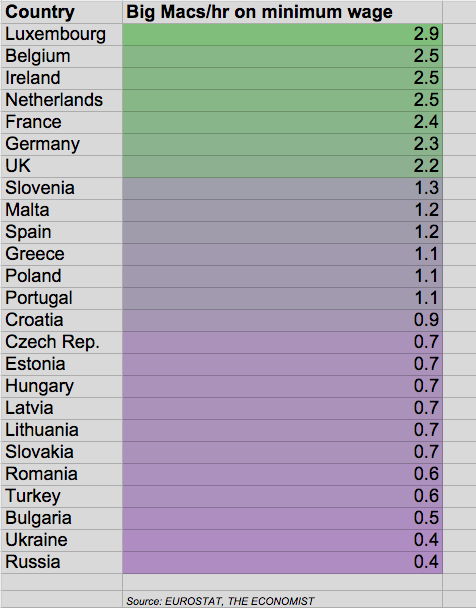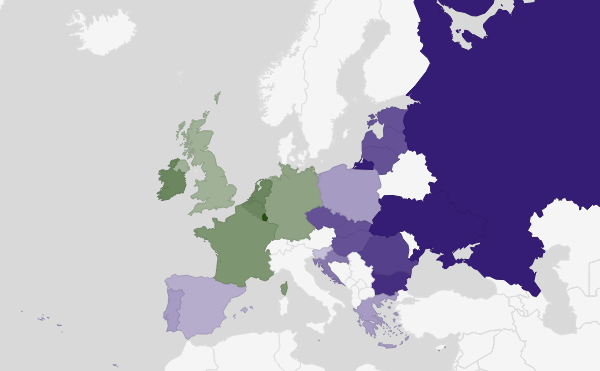Yesterday Portugal announced it was increasing the country's minimum wage. How will its €505 per month compare to other countries in Europe? We've used The Economist's Big Mac index to find out
Yesterday Portugal announced it was increasing the country's minimum wage to €505/month.
How does that compare to other countries in Europe?
We've used The Economist's Big Mac index to calculate how many Big Macs can be purchased in an hour on the minimum wage in various countries*.

The figures vary quite noticeably. Luxembourg's minimum wage buys you just about three Big Macs in an hour, while most of northern Europe (and France) between 2-2.5 Big Macs. Moving south, the minimum wage nets about one Big Mac an hour. As we progress east, it begins to cost more than an hour of work on the minimum wage in order to afford a Big Mac. In Russia (excluding Moscow**), assuming one can still find a McDonald's open, more than two hours work on the minimum 5,554 rubles wage would be needed to savour a Big Mac.
The trends are quite evident when the figures in the table above are plotted on a map.

In the EU, Denmark, Italy, Cyprus, Austria, Finland and Sweden are the only countries that don't have a minimum wage by statute.
You can find minimum wage data here* and the Big Mac index*** here.
*There are slight differences in how the minimum wage is calculated in different countries. For example, monthly versus hourly rates or when rates applied to salaries paid over more than 12 months - here we have tried to standardise the numbers as much as possible in order to calculate a comparable hourly rate. We have also used updated figures (e.g. in Portugal) and have included Germany, where a minimum wage will be introduced in 2015.
**the minimum wage in Moscow is about double the rest of the country.
***for countries not included in the Economist's index, we have conducted our own research.
Photograph: Bloomberg/Bloomberg via Getty Images











